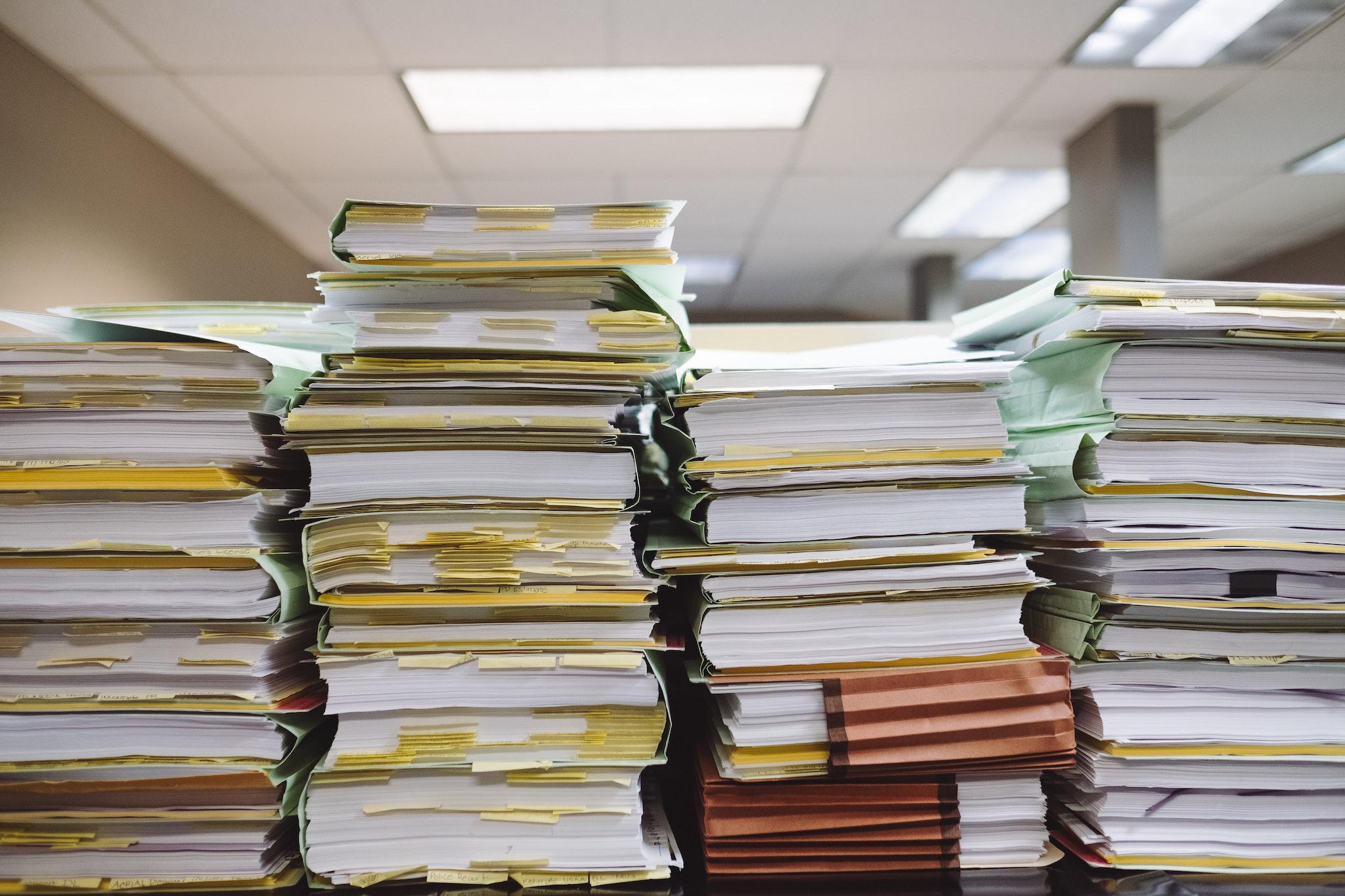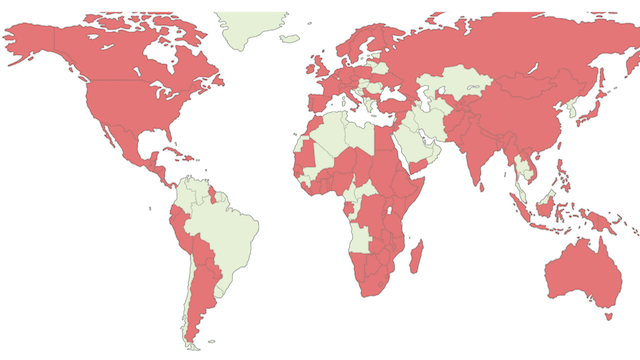In 2020, the United States recommitted to an internal war it had been fighting since 1980. You may not have noticed — what with the pandemic, fraught election, and royal family drama — but it happened. Throughout the federal government, public officials launched an aggressive assault on sludge.
As defined by Harvard law professor Cass Sunstein, sludge is the amorphous accumulation of daily frictions that separate people from the things that can make their lives easier or better. Think tedious paperwork, long wait times, and bureaucratic procedures to fulfill simple requests. If you’ve ever navigated the layers of an automated answering system to speak with a human representative only to be put on hold for hours listening to public-domain slow jazz, then you know the pains of sludge.
But in a crisis year like 2020, sludge can evolve from irritant to deadly by separating people from vital resources. And so the U.S. government took action. Some examples cited by Sunstein:
- The U.S. Department of Agriculture revoked the in-person interview requirement for SNAP (formally known as food stamps).
- The Internal Revenue Service automatically signed up Social Security beneficiaries for economic impact payments so they wouldn’t have to file a tax return (which they typically don’t).
- The Department of Health and Human Services allowed telehealth check-ups to replace face-to-face ones for many services (such as authorizing medical procedures).
Each helped millions of people weather the pandemic better than they might otherwise. Unfortunately, sludge remains an ever-present part of our lives, and even in the best of times, it can be harmful.In his book Sludge, Sunstein lists three key areas in which sludge exerts undue costs on our lives: well-being, mental health, and human dignity.

Trudging through sludge
We’ve already seen three examples of how removing sludge can make life better for people in need (food, money, and medicine). But sludge doesn’t only burden those seeking help. It can stymie those who offer it, too.
In his book, Sunstein discusses how doctors are often required to march through hours of sludge to provide necessary care for their patients. For example, a physician treating someone with opioid use disorder may want to prescribe Suboxone. But to prescribe any treatment containing buprenorphine, an ingredient in Suboxone, the physician must undergo an eight-hour training session to acquire a special waiver. Other practitioners, such as physician assistants, must do that plus an additional 16 hours of training.
“Every day, nurses and doctors must deal with unnecessary and mind-numbing sludge that costs a great deal of time and money and that ultimately reduces the quality of care,” Sunstein writes. “The large costs of health care in the United States are produced, in significant part, by sludge, which means that reducing it would dramatically cut those costs and bring significant benefits to hospitals, doctors, nurses, and patients alike.”
Now, Sunstein isn’t arguing that all such sludge is bad. We want doctors to have training just as we want restaurants to pass health inspections and teens to take driver’s ed before being handed a license. In such cases, sludge slows down a process to ensure the appropriate amount of time has been taken to reach the desired goal.
He also isn’t saying that removing the waiver requirement would unshackle an otherwise latent miracle cure. Other barriers to increasing Suboxone treatment include widespread myths about the drug and health professionals lacking access to addiction experts for consultation.
Rather, Sunstein’s argument is that we need to assess how we use sludge in our businesses and as a society. Are we using it to protect people from harm, or is it serving as a bureaucratic safeguard that shields institutions while people pay the price?
In the case of Suboxone, the cost-benefit question would be: Is the eight-plus-hour training necessary, or does it deter physicians from adding a potentially useful option to their treatment repertoire? A similar analysis could be done for a myriad of other forms, processes, and hurdles that individuals, businesses, and professionals must perform to do their jobs or even live their lives.

Muddying the mental works
The cost of sludge is personal, too. Its prevalence can take a toll on our mental health and our ability to get stuff done. Paperwork is the go-to example here.
Few people are energized by filling out a stack of documents named after a random arrangement of letters and numbers. That’s because such detailed accounting drains our mental capacity. Just as traveling through a stewy swamp depletes our physical stamina, sludge wears down our minds.
Nor is it an equal opportunity offender. People who are already busy, sick, poor, or disabled can find sludge extra-challenging as it becomes yet another cognitive burden.
“It is important to emphasize that as a practical matter, the victims of sludge are often the poorest among us,” Sunstein writes. “A central reason is that if you are poor, you have to focus on a wide range of immediately pressing problems. If the government is asking poor people to navigate a complex system or to fill out a lot of forms, they might be especially likely to give up.”
Sunstein cites a study where researchers asked participants to imagine their car needed to be repaired. The participants were given the choice of fixing it immediately or waiting. They were then asked how they would make that decision and how difficult it would be. After the thought experiment, participants took a short cognitive performance test.
When the repair costs were small ($300), poor and well-off participants performed equally well on the subsequent test. But when the researchers upped the repair costs ($3,000), scores began to vary. The poorer participants performed less well.
These results suggest that the higher-cost scenario consumed more mental resources from the poorer participants. The less money the participants had available, the researchers reasoned, the more difficult it became to figure out ways to come up with $3,000. That challenge burned more mental resources, leaving less to draw upon for the test.
The researchers called this the “burden of poverty.” They write, “Lacking money or time can lead one to make poorer decisions, possibly because poverty imposes a cognitive load that saps attention and reduces effort.”
And that doesn’t consider the emotional toll. When sludge disconnects people from seemingly universal privileges such as voting, it not only impedes their ability to participate in society. It can make them feel humiliated, frustrated, and as though they don’t count. In this fashion, sludge becomes an affront to human dignity.

Breaking the viscous cycle
In his book, Sunstein explores the sources of sludge and reasons it accumulates. Some of the largest sludge factories in operation today are government, education, criminal justice, and the bureaucracies that materialize around industries such as health care.
Sunstein’s solution is the sludge audit, a process by which these institutions quantify the sludge they’ve amassed, perform a cost-benefit analysis, and extricate any sludgy demands that overburden people without meeting mission-critical goals. It’s all about human-centered design.
That means unless you hold a position of considerable clout in such institutions, there’s little that can be done about sludge in your daily life except abide by it. Sludge, it sadly seems, is the one place where trickle-down theory works.
With that said, there are means by which you can trudge through the viscosity more quickly and gracefully — and maybe even come out the other side a bit cleaner. Here are five:
Don’t procrastinate
With rare exceptions, sludge doesn’t dissolve. It builds and builds until it envelopes and devours people like a B-movie monster. And like the protagonist of such a film, you’re going to have to face the monster eventually — might as well stop running and do it.
A tip for fighting procrastination is to look toward the task’s larger meaning. Instead of focusing on the sludge, point your attention to the benefit you hope to gain from it. This tip becomes even more potent if you can discover an intrinsic motivation to drive you through the sludge.
Schedule your sludge
Sunstein notes that people are susceptible to the planning fallacy — that is, they believe they can accomplish more in a given time than they actually can. So in addition to not procrastinating, you also shouldn’t try to conquer it all at once. This is especially true of sludge on a deadline. Waiting until the last minute not only imposes a more burdensome cognitive and emotional price; it also increases the chance for mistakes.
Instead of trying to de-sludge such situations on a Saturday afternoon, schedule a little time every day of the week to get done what you can. Then use Saturday as a wrap-up. It’s also a useful tip for sludge unfamiliar to you as it allows you to dedicate extra time to suss out its intricacies.
Say no to sludge when possible
Sometimes, we voluntarily take on sludge when we don’t have to. Consider the much promoted, yet rarely useful, mail-in rebate. Many people purchase a product thinking the rebate makes it a steal. In reality, the sludge separating them from their cash is more than they bargained for.
Sunstein points to a study that found 80% of people believe they will fulfill a rebate. The actual redemption rate? 31%. Don’t give in to the optimism bias. Unless you can schedule the sludge, it’s better to view the purchase at its original price tag. The same goes for any other deal that substitutes sludge with money.
Automate what sludge you can
The internet and app revolution have created many tools for better managing day-to-day sludge. You can automate payments through your bank, keep important documents on the cloud, and schedule your phone to wait in a call center queue for you. All of which can ease the sludge burden from your day.
Note that sometimes managing these tools can become a source of sludge itself. As such, don’t install multiple apps when one will do. Use that one app across all your devices. And keep your files backed up in a single location and not dispersed across the internet.
Seek sludge assistance
Professionals exist whose job is to wade through others’ sludge. Seek them out so they can manage the things you can’t dedicate time or mental resources to. It’s the reason certified public accountants exist.
Yes, this does put the more well-to-do at an advantage as they can pay to hire out their sludge. But many social agencies will provide assistance filling out the forms necessary to access their services, and that can be the difference between people giving up and connecting with the resources they need.
In the end, Sunstein recommends thinking of sludge as a kind of tax. In this case, the tax is on time, and everybody has to pay their dues. But if you keep it in check, you hopefully won’t have to pay more than your fair share.
“Time is the most precious commodity that human beings have,” Sunstein writes. “Let’s find ways to give them more of it.”
Learn more on Big Think+
With a diverse library of lessons from the world’s biggest thinkers, Big Think+ helps businesses get smarter, faster. To access Cass Sunstein’s full class for your organization, request a demo.
CASS SUNSTEIN All over the world, sludge is an obstacle to freedom. Sludge consists of frictions that separate us from something we want. When there's waiting time, paperwork requirements, some confusing process that you can't navigate, that's sludge. It's like a kind of gooey, viscous substance in which your feet are stuck and you can't get out.
If you're dealing with the criminal justice system, it's especially severe, but if you're dealing with a hospital or your employer, your school, your government or company, it can also be really bad. And it's not merely frustrating. It's treating you without dignity. The question is, What are we going to do about it? Sludge reduction can produce big dividends.
My name is Cass Sunstein. I teach at Harvard Law School. I have a new book; it's called Sludge, and it's about what makes it hard for us to get where we're trying to go.
Sludge can be good when it is ensuring that people aren't reckless or impulsive. For example, if you need to get a driver's license, you will encounter some sludge. It's justified. You shouldn't get a driver's license just because you want one. It's a matter of health and safety.
Sludge can also be good when it's a way of ensuring that the people who are seeking benefits are actually entitled to them. So to impose a little bit of sludge, to make sure that those who are trying to get something from the government or company actually have a right to that thing, that's okay sludge.
Sludge is bad when it makes navigation really hard between a human being and something that can make their life much better. So it might be that in order to get a loan you need to fill out paperwork, and it might be 14 pages, and each of the pages might have really small font. And we might, three pages in, give up and think I can't handle this, or I'll handle this tomorrow and tomorrow never comes. Sludge.
To get healthcare, sometimes you might have to wait for weeks or months to get a test. Sludge. And you might find in a hospital, for example, that nurses are spending 10 hours a week entering things into forms. That's sludge.
Our lives depend on our capacity to navigate something, and when we can't, frequently because sludge stands in our way, we're lost in a world of just fog and diminishment.
One of the less lovely facts of the last decades of research into behavioral science is that we now know more than we ever did about how to manipulate people. If you have a company that wants to make money at people's expense, it can use sludge strategically as a way of achieving that goal.
Dark patterns are patterns of architecture online that end up exploiting people's lack of information or behavioral biases to ensure that they end up buying things they really ought not to buy or that they part with something that matters to them without fully knowing what they're getting into. So for many of us, unsubscribing to something is an ordeal and that's intended by the people who make it an ordeal because subscribing makes them money. They impose sludge in order to make it hard for us to unsubscribe. I, myself, subscribe to four magazines, which I more or less hate, because I didn't want to navigate the sludge that was entailed in unsubscribing to those products.
It's also the case that you can use sludge as a way of disguising terms that you are obliging people contractually to agree to. It's time to recognize the right not to be manipulated, and often the method by which people are manipulated is through the selective imposition of sludge.
Some of the most admirable designers of programs — or cities, or products — are acutely attentive, not only to the product itself, but to what human beings are actually like. And often with a kind of humor and delight, never with a sense of condescension and never exploiting people's human foibles to try to trap or trick them.
We can think of companies that are minimalist with respect to sludge in the sense that it's just really easy to deal with them. If you want to buy something, return something, make a complaint, they make it really easy for you. The products are easy to use. They're very intuitive and people want to continue buying those products.
A sludge audit is an exercise by which someone sees how much sludge there is in a system. A sludge audit should be focused on time because sludge is a kind of time tax.
So you could imagine a hospital doing a sludge audit, asking what are the obstacles patients face in terms of waiting time? Or a government can ask with respect to poor people who are eligible for certain benefits, what do they have to do every month to maintain their eligibility? They might have to do something that's very burdensome every week and the sludge audit might uncover that.
Reducing sludge is not merely a way of giving people access to the things to which they have a right, frequently, but it's also a way of demonstrating that they count.






